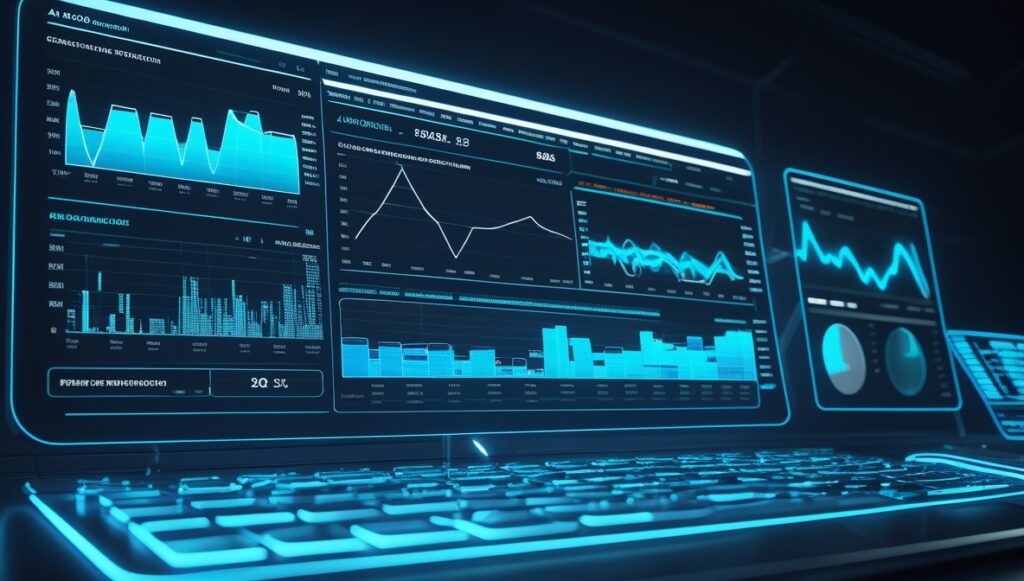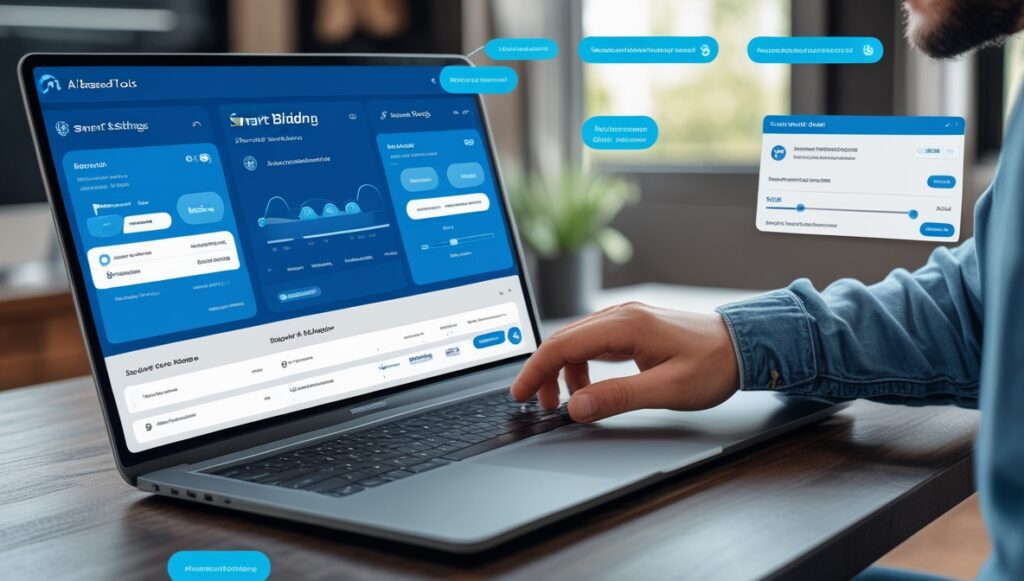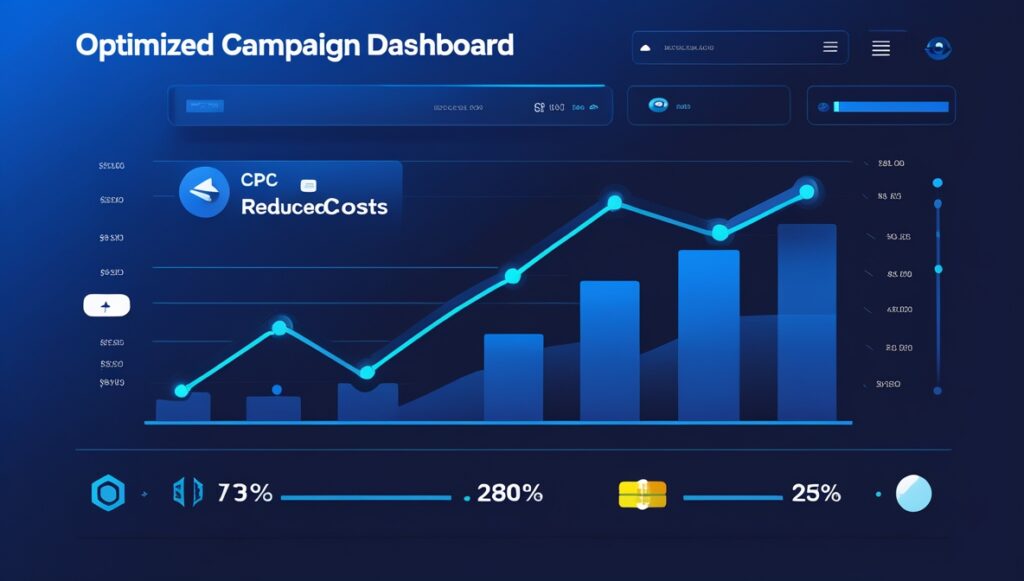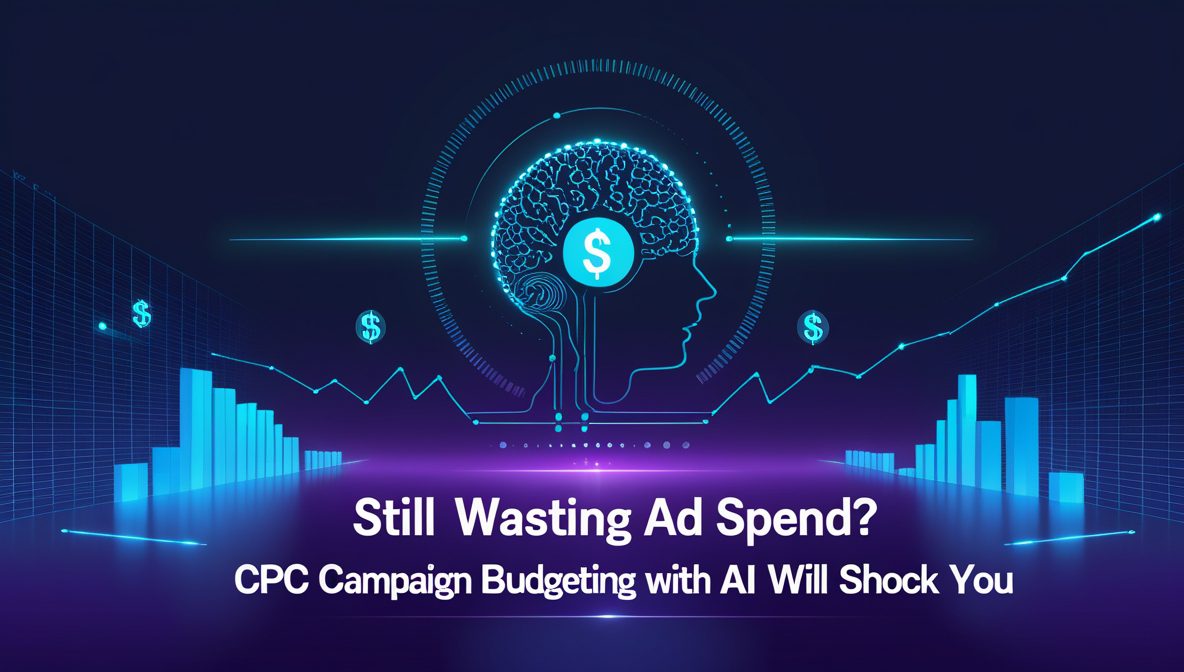Online advertisement can be costly- quickly. Most companies are investing thousands of dollars in adverts and getting minimal in returns. Even using smart targeting, split testing, and pixel tracking, ad funds simply disappear without actual results. That’s where CPC Campaign Budgeting powered by AI is making a serious difference. Rather than the marketer making an educated guess on what to put into effect, these models come into play in making use of live adjustments and smarter data use among other factors.
With a greater number of businesses relying on automation and machine learning, the direction of campaigns in the way they are planned, run, and optimized is shifting. With AI involved, it is no longer the case of spending more but spending smart. Have you ever wondered whether you were pouring money into the ad machine without a clue of what works and what does not, then this change in approach can be what you are looking forward to.
How Traditional CPC Budgeting Falls Short

The majority of campaign budgets are averaged: e.g. average cost-per-click, average conversion, average traffic per day. However, those averages are little indicators of the condition at the moment. Markets go by-the-day. Audiences act in various ways whether it be based on timing, placement or even the device. That is where the traditional planning fails. The changes of digital revolution can not be matched by hand-draft budget plans. Even the professionals in marketing cannot keep pace with performance declines or an increase in the cost of advertisements when they are dependent on just the fixed figures and manual checking.
Limited Insight into Real-Time Spend
CPC tools provide you with the charts, reports and trend relevance- but most of it is delayed. You only get to know that something is wrong when your campaign gets out of control or is not doing well and by that time a part of your budget is already lost. And when you operate several platforms it becomes even more difficult to maintain control. This time lag in understanding renders campaigns to be reactive rather than proactive. It continues to be a reactive business, rather than controlling waste before it is created.
Inflexible Daily Budgets
On most platforms, you are required to predetermine daily budgets. However, strict dailies are not natural to a real world behavior. There are days when your audience is ready to consume your product. On other days, there is deteriorated quality of traffic. The idea of maintaining the same budget in the two cases implies that you are shortchanging or overpaying. AI-driven CPC Campaign Budgeting allows systems to adjust budgets based on opportunity. Should there be a rush on Tuesday afternoon, the system will be able to allocate more of its budget at that time slot – and take a break or decelerate during low-use hours.
Poor Cross-Channel Coordination
When you run Google Ads, Facebook ads, TikTok followers, and even Linkedin outreach, it would be a stab in the dark to use manual budget control at each of those platforms. Your money does not necessarily always work in the best place. The AI software will be able to track many opportunities at the same time, determine which of them are working, and transfer budget to high converting areas. This automated disbursement is time saving and cost-effective.
How AI Enhances Budget Efficiency and Control

Introducing AI into the equation does not only make things quicker; it helps make your advertising budgets smarter. Machine learning is able to see the patterns, detect trends, and predict effectively ways that would have taken people several hours to detect or even days. AI tools do not only automate but also perform better with the right set-ups. CPC Campaign Budgeting becomes a system of learning and adjustment, not a set-and-forget model. Such systems start to better understand what it takes and where to utilize your money in the future.
Predictive Budget Adjustments
Algorithms of AI will be able to predict the time when your campaigns are most likely to work best and anticipate it beforehand. When the machine can estimate that it is likely that the users in a particular and specific place are likely to convert on Friday evenings, it can plan to allocate a higher budget time to that hour. This proactive aspect implies that you should never miss the high-performance spurts and never lose your spend during low engagement times. You are planning with future performance not past performance.
Real Time Bid Optimization
Bid limits are not fixed in such systems, and with the help of AI, the systems automatically adjust the bids according to the probability of a click turning into a sale. That translates to when a person of an occurrence of conversion who is on the web, the campaign will under-bid more to reach the person, whereas reducing how much it will bid to reach users who are unlikely to respond. Such a control does not mean that you are paying for just traffic but you are paying traffic that counts. Your spend does not merely get bigger, it gets sharper.
Budget Redistribution Across Campaigns
The fact that AI allows monitoring and putting a budget in the area where it works the best can be listed among its most potent characteristics. In the event that one ad group is not doing so well, the system can put it on hold and allocate more funds to the other that is performing better. This re-distribution is performed in real time and maintains your overall budget operating in an effective manner, over all platforms and customer segments.
Getting Started with AI in Your Ad Strategy

It has no tech team requirement. Budgeting assisted by AI becomes a part of the service of many platforms and tools. Whether you’re using Google Ads’ Smart Bidding or third-party software, integrating AI into your CPC Campaign Budgeting is more accessible than ever. The secret is learning to configure your campaigns that will run on machine learning, and being ready to accept a degree of loss of control to gain a return in performance.
Set Clear Goals and Conversions
AI requires objectives. No matter what you desire to achieve whether it is purchasing, sign-up or a call you must know specifically what a conversion should be to be considered a success. By doing so the system has an idea on how to optimize. Ensure that you have tracking on each platform. The best AI will be unable to make the right decisions without proper data. The cleaner the data you feed to it are, the sooner it will learn and perform better.
Use Smart Campaign Structures
Rather than having tens of ad sets that have little differences, AI systems are more effective when campaigns are organized into bigger patterns. Target like minded, people with similar intention, clear creative themes and also you have to avoid putting your budget too thin by putting too many variables. By streamlining your framework Artificial Intelligence will know where to push its budget because it knows what is working and what isn’t.
Monitor and Adjust Regularly
Although AI is capable of a great deal it is not entirely self-managed. Check-ins allow you to keep up with the performance and fix some aspects of creativity or audience targeting when needed. The budget is dealt with by AI, still, your approach requires guidance. These check-ins can be used to evaluate performance both prior and after integration with AI. Your engagement will be more sharp in most cases, there will be an upsurge in conversions, and you will have reduced wastage.
The Future of Budgeting: Smarter, Faster, Leaner

We are also living in a time where purse is not required to open more and open more to advertise but the same amount of money must be made to count. Attention span is reducing and as the competition is increasing, quality is becoming more relevant than quantity. AI is turning CPC Campaign Budgeting into a performance engine. It is not time-saving only, but it is also about making a better choice, in a shorter period. The brands that utilize this thinking early will get a massive advantage in the competitive market.
Always-On Learning
There is no stop to the adjustment of AI models. The more the information they handle the more accurate they become. This forms a campaign cycle that is continuously getting better even when your total budget is fixed. As time runs its course, your cost per acquisition declines whereas your return increases. This continuous enhancement is not a thing you will receive in instances of a traditional campaign management. That is one of the key reasons why more marketers switch to AI-based systems.
Reduced Waste and Better Forecasting
When AI monitors the expenditure of every cent, then it is simple to detect where wastages are occurring. It does not matter whether it is a bad landing page, bad timing, or even irrelevant targeting, the system detects it quickly. This can be done faster and less money wasted. There is also better forecasting. You will be able to understand how much you will have to invest to reach your targets, which days or platforms are the most efficient and where you should focus your efforts next.
Competitive Advantage
The quicker your system learns, the more successful your results will become-and you know you will be one step ahead of those who are even in possession of older models. Brands benefit by having better reach, higher ROI and cheaper cost of learning through early adoption of AI in campaign management. The greater the number of firms who enter the race, the more and cheaper the companies with the current idea of how to deal with AI will win.
Summary
CPC Campaign Budgeting is no longer about setting fixed numbers and hoping for the best. It is getting smarter, quicker and more efficient with AI. Whether it is predictive budget moves or real-time bid optimization, AI is enabling marketers to reduce wastage, better targeting, and eke out better results per dollar spent on any campaign.
In case you are still managing your budgets manually it is time to review your approach. Let the machines provide lift–you become more concerned with driving growth and not just keeping spending at bay.

